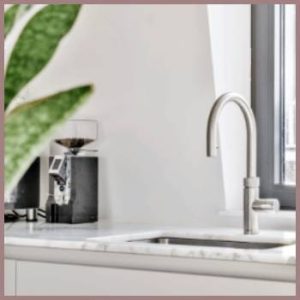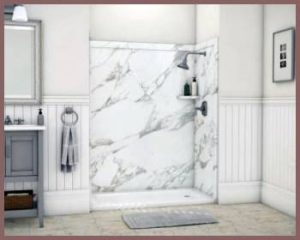When it comes to radiant heating solutions, Warmboard has certainly made a name for itself in the market. But as great as Warmboard may be, it might not always be the best choice for every situation.
The question then becomes, “What alternatives to Warmboard exist?” This article will provide a detailed exploration of three major competitors: Uponor, Schluter-DITRA-HEAT, and ThermoFin U.
I will give you more!
Alternatives To Warmboard
- Uponor Radiant Heating
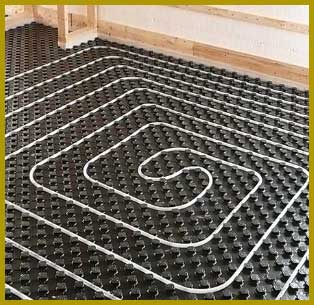
Uponor, a Finnish company, offers a radiant heating solution similar to Warmboard.
Its heating system is based on a flexible PEX tubing design that offers several advantages over Warmboard.
Pros
One of the significant benefits of Uponor is its cost-effectiveness.
It is less expensive than Warmboard, making it an attractive option for budget-conscious homeowners.
Uponor systems are also known for their flexibility. The PEX tubing can be customized to fit the exact contours and specifications of any room. This can be advantageous in spaces with unique architectural elements or challenging layouts.
Cons
On the downside, Uponor systems can be more challenging to install due to their flexibility. Additionally, they have a slower response time in heating up, which can be inconvenient for users who want quick heat.
- Schluter-DITRA-HEAT Radiant Flooring
Schluter-DITRA-HEAT, a German-made product, is another notable alternative to Warmboard. It provides under-tile heating solutions that are energy-efficient and customizable.
Pros
The DITRA-HEAT system stands out for its versatility in being able to accommodate any tile size or format, which adds to its aesthetic appeal.
Moreover, it features a unique uncoupling technology, which helps prevent tile cracking and dislodging – a problem often seen with heated floors.
Cons
The DITRA-HEAT system requires a higher initial investment, which may not be suitable for all budgets. It is also specifically designed for tile floors, making it less versatile for those who prefer other types of flooring.
- ThermoFin U Radiant Heat Transfer Plates
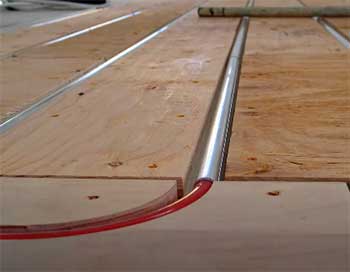
ThermoFin U is another potential competitor in the radiant heat market.
This US-made product works by installing aluminum heat transfer plates beneath your flooring.
Pros
ThermoFin U is particularly energy-efficient due to the excellent heat transfer properties of the aluminum plates.
This system also offers a quick response time, heating your floors faster than many other systems.
Cons
However, the installation process for ThermoFin U can be somewhat complex, as it often requires professional assistance. The system is also more costly upfront compared to some other options, like Uponor.
- HeatPly Radiant Heat System
HeatPly, a US company, provides an in-floor radiant heating solution that’s designed for efficiency and ease of installation.
Pros
HeatPly’s primary advantage lies in its design. It utilizes heat transfer panels made from certified sustainable hardwood, and the panels come with pre-printed circuit patterns for easy tube routing, making installation a breeze.
The system’s efficiency also shines, distributing heat evenly across surfaces and offering quick warm-up times.
Cons
However, the overall cost of the HeatPly system can be on the higher end. While installation may be simpler, you may end up spending more on the system and its specific components.
- Warmup Electric Floor Heating System
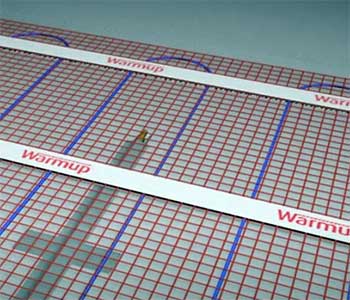
Warmup offers an electric radiant floor heating system, quite different from the hydronic systems that Warmboard and the previously discussed alternatives use.
Pros
One of Warmup’s advantages is its flexibility.
Since it’s electric, you can use it in just one room or the entire house. It also works under almost any type of floor covering.
Warmup systems are thin and easy to install, especially for remodels where raising the floor level can be a problem.
Cons
The major downside to Warmup systems is that they can be more expensive to run compared to hydronic systems because electricity generally costs more than gas. They are also not as efficient at heating larger areas.
- Nuheat Electric Floor Heating Systems
Like Warmup, Nuheat is an electric radiant floor heating solution, but it differentiates itself with its pre-built “mats” that make installation even easier.
Pros
Nuheat mats come in over 60 standard sizes that fit most rooms, and can also be custom-made. This makes installation straightforward and hassle-free.
This system also includes programmable thermostats for better control over your heating schedule, potentially saving on energy costs.
Cons
Again, like other electric systems, Nuheat may be more expensive to run than hydronic systems. While the pre-built mats simplify installation, they limit customization on-site, which can be a disadvantage for complex room layouts.
Also Read: Differences Between Nuheat And Ditra Heat.
Frequently Asked Questions (FAQ)
Now let’s address some common questions about Warmboard and its alternatives.
Uponor, Schluter-DITRA-HEAT, and ThermoFin U are all similar to Warmboard in that they provide radiant heating solutions. Each system uses a different method to transfer heat, but the aim is the same – to provide a comfortable, evenly heated floor.
Warmboard panels are constructed from a 1-1/8″ thick, 4′ x 8′ sheet of tongue and groove, weather-resistant plywood. They have aluminum panels attached to them, which help conduct the heat from the water tubes to the floor surface above.
Yes, Warmboard can be used as a subfloor. It is designed to provide structural support and radiant heat in one integrated system. This dual functionality makes it a unique product in the radiant heating market.
Yes, Warmboard can be installed over concrete. However, proper measures must be taken to prevent moisture from the concrete from affecting the Warmboard panels.
Final Thoughts
In conclusion, there are various alternatives to Warmboard available. Each comes with its pros and cons.
Therefore, when selecting the best radiant heating system for your needs, carefully consider factors such as cost, installation process, response time, and compatibility with your preferred type of flooring.

